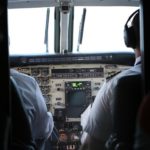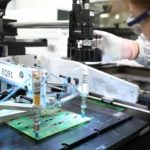A new study suggests that smart glass in airport windows which optimises the amount of light that gets through could improve passenger experience and boost profits.
The research, conducted at Dallas Fort Worth (DFW) International Airport, found that terminal windows fitted with ‘dynamic glass’ “overwhelmingly” improved passenger comfort over conventional glass, resulting in an 83% increase in passenger dwell time at a preferred gate seat and a 102% increase in concession spending.
The research study was led by Dr Alan Hedge, a professor in the Department of Design and Environmental Analysis at Cornell, and conducted at DFW Airport using View Inc.’s Dynamic Glass product. It incorporates “intelligent algorithms” to continually calculate the optimum tint level of windows and changes them automatically. In an airport this is useful for reducing glare and overheating.
Cutting carbon
“DFW is the world’s largest carbon neutral airport, and we are constantly evaluating new technologies and solutions throughout the airport to identify improvements for customer experience and sustainability,” said Sean Donohue, CEO at DFW Airport.
“The results of this study confirm that dynamic glass can reduce cooling costs and support DFW’s commitment to minimise our carbon footprint.”
He added: “We were very pleased to see the positive effect on the customer experience and how the glass changed customer behaviour with less glare and cooler temperatures.”
Key findings from the study include:
- Seating with a view matters: Passengers prioritise access to light and views of airplanes ahead of proximity to electrical outlets, restrooms and televisions – second only to locations with empty adjacent seats. With dynamic glass installed, 84% of passengers sought a better view, preferring to sit close to (dynamic glass) windows.
- Dynamic glass increased passenger comfort by keeping the heat out. Infrared imaging showed that dynamic glass reduced surface temperatures by 10 to 15 degrees on seats, carpets, passenger clothing and skin compared to the gate with conventional glass. This can also reduce use of HVAC systems for cooling.
- Comfort at the gate translates to longer passenger dwell times and increased revenue. Survey results found that passengers seated by dynamic glass stayed 83% longer than passengers seated next to conventional glass.
After dynamic glass was installed at the Twisted Root restaurant at DFW Airport, the restaurant saw a 102% year-over-year increase in concession sales, over a six-month period.

